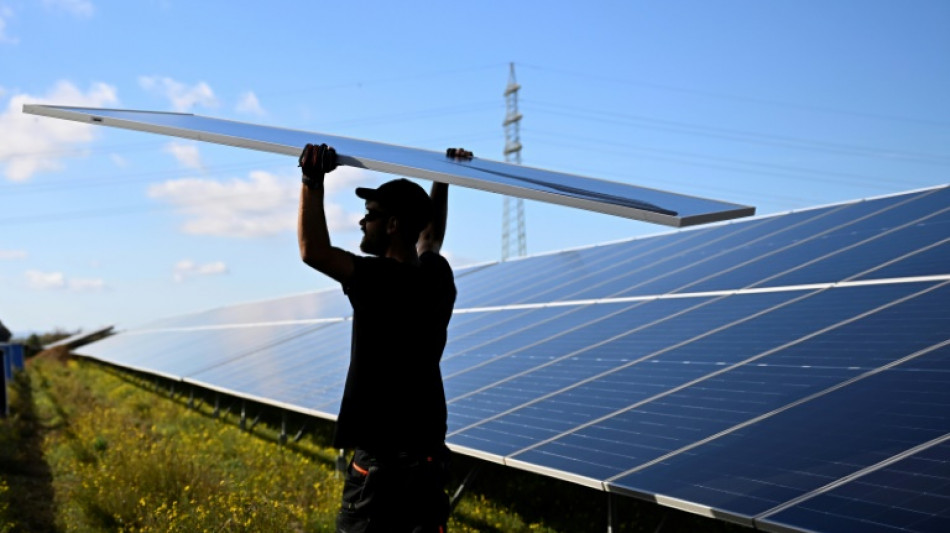
SCS
0.0200

Investment in clean energy technologies is set to strike a record this year despite global economic uncertainty, double the spending on fossil fuels that will dip for the first time since 2020, the International Energy Agency said Thursday.
While the Trump administration has been hostile to renewable energy sources and trumpets boosting oil production, the IEA said security concerns as well as rising demand for electricity -- including from artificial intelligence and data centres -- is driving investment in clean energy sources.
"Amid the geopolitical and economic uncertainties that are clouding the outlook for the energy world, we see energy security coming through as a key driver of the growth in global investment this year to a record $3.3 trillion as countries and companies seek to insulate themselves from a wide range of risks," Executive Director Fatih Birol said as the IEA published its latest annual World Energy Investment report.
It expects investment in clean technologies, including nuclear and electricity distribution grids, to hit a record $2.2 trillion this year.
Meanwhile, investment in oil, natural gas and coal is set to dip to $1.1 trillion, as companies react to falling prices and lower demand expectations. Most of drop is due to investment in US oil production, while investment in liquefied natural gas (LNG) projects there and elsewhere is expected to lead to the largest-ever capacity growth in 2026-2028.
Since returning to the White House, Trump has slapped a 10 percent tariff on most trading partners, alongside higher rates on dozens of economies, including China and the European Union, that have since been reduced or put on pause until early July while negotiations are held.
Earlier this week the OECD slashed its annual global growth forecast, warning that Trump's tariffs blitz would stifle the world economy.
But energy investments haven't suffered yet.
"The fast-evolving economic and trade picture means that some investors are adopting a wait-and-see approach to new energy project approvals, but in most areas we have yet to see significant implications for existing projects," Birol said.
- US renewables to 'level off' -
But the IEA said the shift in US policies would impact investment there in renewables.
"Spending on renewables and low-emissions fuels in the United States almost doubled over the last 10 years but is now set to level off as supportive policies are scaled back," it said.
The report found the rapid rise in electricity demand -- for industry, cooling, electric mobility, data centres and AI -- was also shaping investment trends.
The sector is expected attract $1.5 trillion in investments this year, 50 percent more than fossil fuels.
The IEA also noted that nuclear energy has been making a comeback as electricity demand from data centres risks doubling in the next five years. While renewables are expected to meet most of that additional demand, the steady supply that nuclear plants offer have prompted a number of tech companies to enter into supply agreements.
But the Paris-based IEA, which advises industrial nations on energy policy, warned that spending on electricity grids was not keeping up with investment into generation. In addition to lengthy permitting procedures, grid expansion was also being held back by tight supply of transformers and cable, it found.
Despite the rising levels of investment in renewable energy production, the IEA said it must double to achieve the goal set at the 2024 UN climate conference: a tripling of the installed renewable capacity by 2030.
And the urgent demand for power means new plants using dirty fuels such as coal are still being built, with a four percent increase in investment expected this year.
"In the face of rapid electricity demand growth and concerns linked to security of supply, such as various geopolitical risks as well as uncertainties over hydropower output, China and India are approving increasing amounts of new coal-fired power," said the IEA report.
W.Cejka--TPP